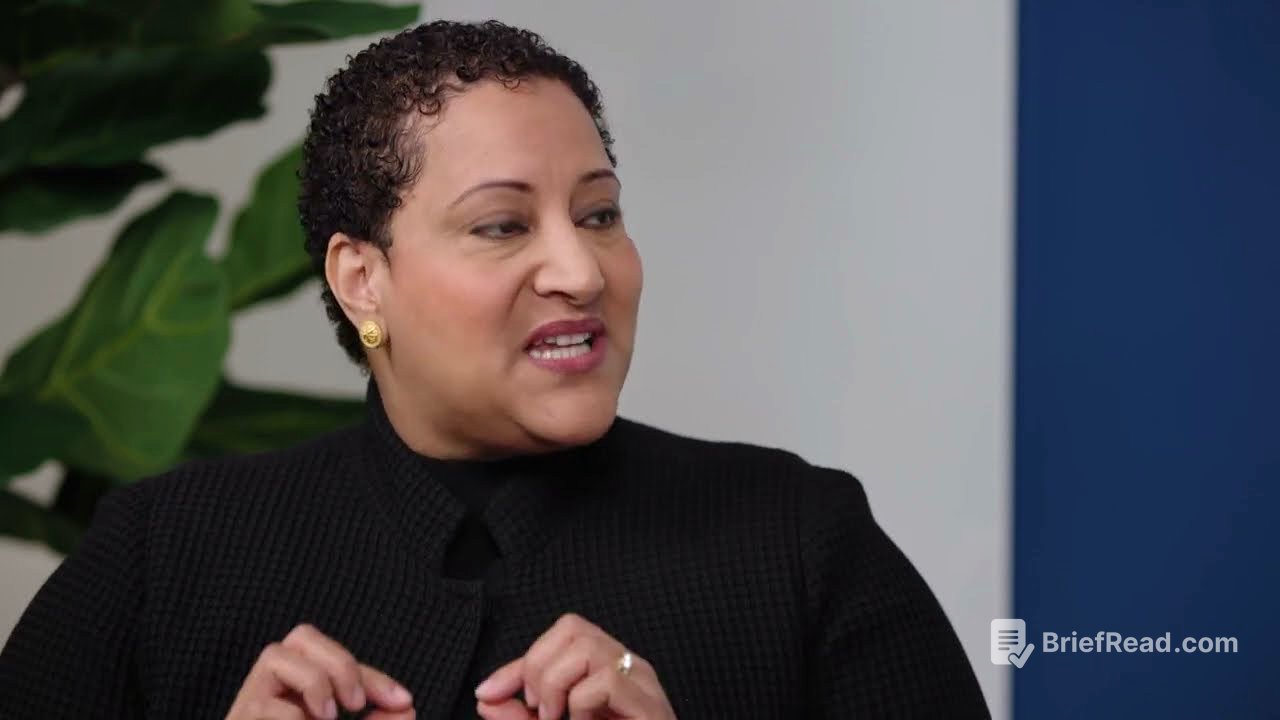TLDR;
This module explores the importance of leadership, its definition, whether leaders are born or made, and essential tools for aspiring leaders. It emphasises that leadership isn't confined to formal authority but is about taking ownership, solving problems, and inspiring others. The discussion highlights the significance of teamwork, envisioning the future, embracing change, and securing not only personal success but also the well-being of communities and future generations.
- Leadership is accessible to everyone, regardless of formal authority.
- Teamwork is crucial for scaling impact and solving complex problems.
- Leaders must envision the future and drive change.
- Investing in leadership skills secures personal and collective futures.
Introduction to Leadership [0:04]
The module introduces Sadal Neale, a professor at Harvard Business School and an expert in leadership, change, digital mindset, and remote work. The discussion will cover why leadership is important, its definition and dimensions, whether leaders are born or made, and the essential tools for aspiring leaders. The aim is to equip individuals with the understanding and skills to become leaders in their communities and beyond.
Why Leadership Matters [1:35]
Leadership is important because it's not tied to formal authority; anyone can be a leader by acting like an owner and solving problems. This involves taking personal responsibility and speaking up when necessary, whether in families, communities, or schools. Developing these behaviours early on can prepare individuals for future leadership positions.
The Role of Teams in Leadership [4:00]
Leadership extends to leading teams, which are defined as groups of three or more people. The ability to lead a small team is scalable to larger organisations because the core behaviours remain the same. Teams are essential for solving complex problems, dividing labour, and achieving more than individuals can alone. Structuring, motivating, and creating effective processes for teams are crucial functions of leaders.
Inventing the Future: Vision and Direction [6:11]
Inventing the future involves anticipating possibilities by understanding the present landscape. Leaders act as beacons, setting direction and vision based on imagined future realities. This requires exposure to various fields, including technology, where leaders need to learn enough to shape its direction, even if they aren't experts. The "30% rule" suggests learning the basics and common vocabulary to effectively influence technological advancements.
Change Management as a Core Competency [9:20]
Change management is a fundamental leadership competency because it drives improvement, whether small or large. Leaders must be able to change cultures, organisations, and mindsets, enabling others to adapt and be comfortable with change. While people often resist change due to a preference for predictability and stability, leaders must facilitate this process to meet the dynamic demands of the world.
Securing Personal and Collective Futures [12:40]
Investing in leadership skills secures not only personal futures but also the futures of families and communities. By empowering and shaping the lives of others, leaders can have a significant impact on the world. This involves acting like an owner, building effective teams, setting direction and vision, driving change, and empowering others.
A Defining Quote on Leadership [14:07]
A quote from John Quincy Adams defines leadership as inspiring others to dream more, learn more, do more, and become more. This encapsulates the essence of leadership: enabling others to grow and achieve their potential. This principle is central to the program's mission of infusing leadership qualities in young people worldwide.
Leadership as a Catalyst for Change [15:33]
Leaders can be community builders, economic catalysts, and agents of change, driving progress in a rapidly evolving world. They can amplify skills, collaborate globally, and address shared problems across different contexts. True leaders are aware of both local and global scenarios, connecting with others to lead more effectively.
Imagining Oneself as a Leader [16:56]
The journey to becoming a leader begins with imagining oneself as capable of leadership. Defining leadership in accessible terms makes it a goal within reach for everyone. The module aims to show that leadership is accessible to all, encouraging individuals to see themselves as potential leaders.









